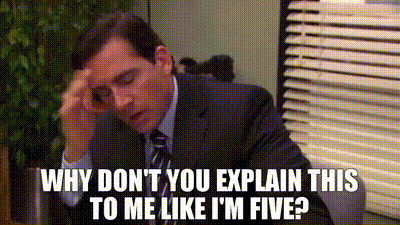Just read the two cases briefed and Waterman and I still opine the claims are time barred for all but three of the plaintiffs.
In a nutshell, albeit a big nut shell, a new statute, adopted in 1989 created a four year SoL for cases arising under federal statutes enacted after 1990. The Plaintiff's claims arise from 42/1981 - a post Civil War statute so those claims remain clearly under a 2 year SoL. Section 1983 was a new, general expansion of section 1981, passed in 1979-so claims brought under the original part of section 1983 are still governed by the original by the two year SoL that has been applied since the original post Civil War Civil Rights Acts were passed.
This is the complete language of 42/1983
Every person who, under color of any statute, ordinance, regulation, custom, or usage, of any State or Territory or the District of Columbia, subjects, or causes to be subjected, any citizen of the United States or other person within the jurisdiction thereof to the deprivation of any rights, privileges, or immunities secured by the Constitution and laws, shall be liable to the party injured in an action at law, suit in equity, or other proper proceeding for redress, except that in any action brought against a judicial officer for an act or omission taken in such officer’s judicial capacity, injunctive relief shall not be granted unless a declaratory decree was violated or declaratory relief was unavailable. For the purposes of this section, any Act of Congress applicable exclusively to the District of Columbia shall be considered to be a statute of the District of Columbia.
This brings the case to the 1996 Amendment to 42/1983. If the Plaintiff's claims arose under the amended language then the four year SoL applies. Here's the amended part:
"except that in any action brought against a judicial officer for an act or omission taken in such officer's judicial capacity, injunctive relief shall not be granted unless a declaratory decree was violated or declaratory relief was unavailable"
The key language is under what federal law the claims arose. "We conclude that a cause of action 'aris[es] under an Act of Congress enacted' after December 1, 1990—and therefore is governed by § 1658's 4-year statute of limitations—if the plaintiff's claim against the defendant was made possible by a post-1990 enactment." Jones v. R. R. Donnelley & Sons Co., 541 U.S. 369, 158 L.Ed.2d 645 (2004). Jones is the ultimate controlling authority on this principle and the only other case Plaintiffs cited. The Plaintiffs' have at least one claim that purportedly arises under 42/1983, but that does not answer the complete question. The Plaintiff's claims clearly do not invoke or even touch upon the 1996 Amendment (red). The plaintiffs' 42/1983 claims clearly arise under the original 1979 language (green) and were made possible by the original language (green) of 42/1983, assuming the Court does not treat the otherwise irrelevant 1996 amendment as creating an entirely new basis for a 1983 recovery, a reading of the statute and its legislative history that seems obviously wrong but it is not impossible for the Court to find a way to that conclusion. I do not think Judge Rose is that judicially adventurous, more of a straight balls/strikes kind of judge-which is the kind of judges the system needs.
Williams and Waterman are by the same judge, a particularly smart one. They are a year apart and Williams is newer. In Williams (the case upon which Plaintiffs rely), the violation of federal rights arose from a new 1996 statute that created a federal action for violations of the act, rather than either 1981 or the original and remaining substantive language of 1983 (green). This is a smart argument by Plaintiffs' lawyers but I opine it will not save them from the SoL. There have been several northern and southern district (of Iowa) cases that apply the 2 year limit to 1983 actions because the 1996 amendment does not create an actionable federal right; indeed, the 1996 amendment limits the scope of the original 1983 language.
So I think we're back to the claims of three Plaintiffs and those claims are very weak. They will most likely be dismissed on summary judgment because they cannot reach the level of a "hostile work environment" and establish no individual act that is by itself actionable.
In a nutshell, albeit a big nut shell, a new statute, adopted in 1989 created a four year SoL for cases arising under federal statutes enacted after 1990. The Plaintiff's claims arise from 42/1981 - a post Civil War statute so those claims remain clearly under a 2 year SoL. Section 1983 was a new, general expansion of section 1981, passed in 1979-so claims brought under the original part of section 1983 are still governed by the original by the two year SoL that has been applied since the original post Civil War Civil Rights Acts were passed.
This is the complete language of 42/1983
Every person who, under color of any statute, ordinance, regulation, custom, or usage, of any State or Territory or the District of Columbia, subjects, or causes to be subjected, any citizen of the United States or other person within the jurisdiction thereof to the deprivation of any rights, privileges, or immunities secured by the Constitution and laws, shall be liable to the party injured in an action at law, suit in equity, or other proper proceeding for redress, except that in any action brought against a judicial officer for an act or omission taken in such officer’s judicial capacity, injunctive relief shall not be granted unless a declaratory decree was violated or declaratory relief was unavailable. For the purposes of this section, any Act of Congress applicable exclusively to the District of Columbia shall be considered to be a statute of the District of Columbia.
This brings the case to the 1996 Amendment to 42/1983. If the Plaintiff's claims arose under the amended language then the four year SoL applies. Here's the amended part:
"except that in any action brought against a judicial officer for an act or omission taken in such officer's judicial capacity, injunctive relief shall not be granted unless a declaratory decree was violated or declaratory relief was unavailable"
The key language is under what federal law the claims arose. "We conclude that a cause of action 'aris[es] under an Act of Congress enacted' after December 1, 1990—and therefore is governed by § 1658's 4-year statute of limitations—if the plaintiff's claim against the defendant was made possible by a post-1990 enactment." Jones v. R. R. Donnelley & Sons Co., 541 U.S. 369, 158 L.Ed.2d 645 (2004). Jones is the ultimate controlling authority on this principle and the only other case Plaintiffs cited. The Plaintiffs' have at least one claim that purportedly arises under 42/1983, but that does not answer the complete question. The Plaintiff's claims clearly do not invoke or even touch upon the 1996 Amendment (red). The plaintiffs' 42/1983 claims clearly arise under the original 1979 language (green) and were made possible by the original language (green) of 42/1983, assuming the Court does not treat the otherwise irrelevant 1996 amendment as creating an entirely new basis for a 1983 recovery, a reading of the statute and its legislative history that seems obviously wrong but it is not impossible for the Court to find a way to that conclusion. I do not think Judge Rose is that judicially adventurous, more of a straight balls/strikes kind of judge-which is the kind of judges the system needs.
Williams and Waterman are by the same judge, a particularly smart one. They are a year apart and Williams is newer. In Williams (the case upon which Plaintiffs rely), the violation of federal rights arose from a new 1996 statute that created a federal action for violations of the act, rather than either 1981 or the original and remaining substantive language of 1983 (green). This is a smart argument by Plaintiffs' lawyers but I opine it will not save them from the SoL. There have been several northern and southern district (of Iowa) cases that apply the 2 year limit to 1983 actions because the 1996 amendment does not create an actionable federal right; indeed, the 1996 amendment limits the scope of the original 1983 language.
So I think we're back to the claims of three Plaintiffs and those claims are very weak. They will most likely be dismissed on summary judgment because they cannot reach the level of a "hostile work environment" and establish no individual act that is by itself actionable.
Last edited:



